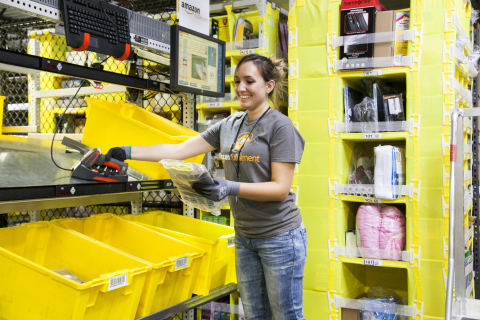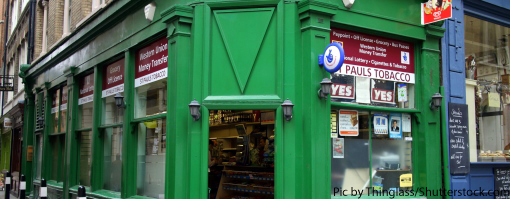The relationship between shoppers and technology has been mapped out in a new study.
A survey of 15,000 shoppers by Nielsen research commissioned by Diebold Nixdorf and carried out by Nielsen, provided insight about consumers’ grocery shopping journeys, and the role that technology plays in shaping these journeys.
Shoppers aged 18 to 65 across 15 countries throughout Europe, the Americas and the Asia-Pacific region were broken down into six typologies, each providing insight into why and how consumers leverage technology along their shopping journey:
- Well-balanced traditionalists are driven by long-standing habits and have not yet made a strong connection between retail and technology.
- Sensible socialisers need to feel at ease with solutions before they use them, and still have some preference for human connections.
- Hesitant potentials are generally tech-savvy but give thorough consideration to privacy - they need some convincing about the value and benefit of new solutions.
- Hands-on pragmatists are highly self-directed and looking for solutions that will save them time.
- Modern convenience seekers are keen on information and expect a seamless shopping journey that’s supported regardless of their choice of channel.
- Aspirational tech fans tend to be the early adopters, who always search for new experiences and will be the first ones to try out new options offered by their stores of choice.
In the UK, the dominant typology recorded was the hands-on pragmatist, with 25 per cent of those surveyed falling into this category.
They were described as “busy, rational problem-solvers” who prefer self-checkout, use technology to save time and are motivated by efficiency, price and control.
In this category, immediate access to products was a key driver and shopping motivation, and they were most likely to visit a store to discover new products - with 99 per cent generally preferring self-checkout if the option is provided.
Waqas Cheema, consumer insights leader at Nielsen, said: “We often experience that companies have only one specific target group in mind when it comes to technology - the early adopters - within this study, we found that it’s important to have a broader look and to take into account different shopper segments.
“Even the not so tech-savvy shopper segments are keen to include technology in their journey if it meets their needs or solves an issue," Cheema explained, adding: "The sensible socialisers, for example, are not very keen on new technology and generally prefer the staffed check-out lane because personal interaction is important for them, but if they only have a few items, or if there is a queue, four out of five also prefer self-checkout.”
Ben Gale, regional vice president of retail for EMEA at Diebold Nixdorf, said: “In our conversations with clients and observations in the market, we see many sophisticated approaches to customer segmentation, yet we often find one aspect missing - an understanding of how and why shoppers adopt technology differently along their retail journeys, which led to the idea for this research.
“Retailers can gain inspiration to help them break through the noise and improve journeys by considering the 'why' behind how shoppers engage with retail technology.”
For the research, 94 per cent of the respondents were either the primary grocery shopper for their household, or frequent buyers and decision makers about food, grocery and personal care items for their family.
Shoppers across the US, Canada, Mexico, Brazil, France, Spain, Italy, Germany, the UK, Sweden, China, Singapore, Malaysia, Thailand and Australia were surveyed.
Latest News
-
Deichmann rolls out new order fulfilment platform
-
River Island makes further headway on omnichannel transformation with Shopify migration
-
Southern Co-op partners with Deliveroo across 139 stores
-
Contactless card limit flexibility to be introduced in March 2026
-
Tesco strikes AI partnership with Mistral AI to deepen personalisation and speed analysis
-
Dutch supermarket Plus rolls out electronic shelf labels across 265 stores
Beyond Channels: Redefining retail with Unified Commerce
This Retail Systems fireside chat with Nikki Baird, Vice President, Strategy & Product at Aptos will explore how unified commerce strategies enable retailers to tear down these barriers and unlock new levels of operational agility and customer satisfaction.
The future of self-checkout: Building a system that works for consumers and retailers
In this webinar, industry leaders discussed what the future of self-checkout looks like and how retailers can make the technology work for everyone.
© 2024 Perspective Publishing Privacy & Cookies










Recent Stories